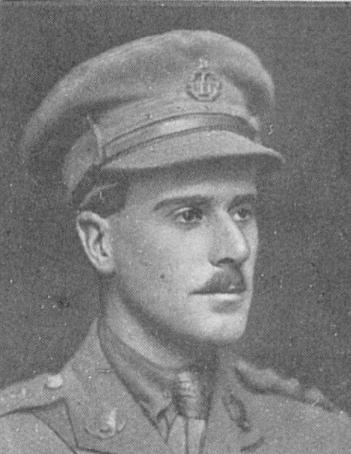Captain Geoffrey Boisselier Davies
Geoffrey Davies was born on 26 October 1862 to Medical Dr Hughes Reid Davies and his wife Edith Llewellyn at Bow Common in London.
He was educated at Rossall where he developed an excellence in sport, especially Cricket and he joined the School Army Officer Training Corps where he rose to become Colour Sergeant.
He graduated to Selwyn College, Cambridge where he was awarded his Cricket blue in his first summer as a student and during his time at Cambridge he topped the bowling averages and proved a competent batsman making two centuries in the same week. As he entered his fourth and final year at Cambridge he was due to be appointed Captain of Cambridge Cricket team but the war intervened.
He played about 20 times for Essex Cricket from 1912 to 1914 to make a total of 54 first class matches, scoring 1487 runs and taking 141 wickets. Views of his contemporaries expressed in 'Wisden' was that he would have been a top English all rounder.
His last inning for Essex was against Somerset where he scored 118 and took 4 wickets for 18 runs.

When war was declared Geoffrey joined the Essex Regiment and was posted to the newly formed 11th Battalion as a Second Lieutenant.
He performed his duties well and by 1915 he had reached the rank of Captain of B Company in the 11th Battalion.
On 26 September 1915 the 11th Battalion was amongst troops attacking the German second line trenches at Hulloch. The attackers were subject to heavy shelling and machine gun fire. They managed to reach the wire near to their target but the defensive fire and casualties were so great that they had to retreat. The Battalion were to lose 18 Officers and 353 men that day including Geoffrey and their Commanding Officer Lt Col Radcliffe.
Geoffrey's death was later described by his adjutant - I last saw Captain Davies going strong on the Colonel's left with a revolver in his hand. He seemed absolutely fearless - He was Grand! When he fell in that attack he was leading - twenty yards ahead of his men.
His body was never recovered after the advance and his death is commemorated at Loos Memorial.


